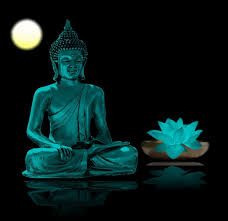It’s interesting that this title is placed under the sub-thread of “atheism & agnosticism,” but at least two articles mention God and “His” usefulness to end suffering. This is neither an endorsement nor a rebuke-merely an observation. Though I am a rather devout atheist, I’m coming at this topic from a slightly spiritual, Buddhist perspective. I apologize to any Buddhists out there, if I get some facts wrong. There is no disrespect intended.
I often refer to the American Heritage Dictionary, 2nd College Edition to clarify my points and this piece is no different. All definitions refer to that particular dictionary. The word suffer means, “…to feel or endure pain or stress…” or “…to sustain loss, injury, harm or punishment…” The word necessary means, “….absolutely essential; indispensable…” From that we can infer that unnecessary would mean “non-essential.” In other words, the question asks, how do we end pain that isn’t essential? My question is, is any suffering “necessary” and if not, is that an essential part of the question?
Word choice is very important
All of this may seem like splitting hairs, but I think word choice is very important. All of us who write for helium (presumably) take writing seriously, to some degree. This is why I often get into trouble with the site for poking fun at the way titles are written. If helium wants quality writing, give us a quality starting point. That said, the answer to the spirit of the question is actually fairly simple. We all suffer only as much as we allow ourselves to. Much like everything, we largely choose our own destinies, whether consciously or not.
Suffering is caused by desire
In Buddhist thought, suffering is caused by desire. Without desire, especially for material things, suffering is greatly reduced. I just read a short, inspirational note about renunciation. The philosopher noted that renunciation doesn’t mean that we don’t acknowledge material things, we merely acknowledge that all material things are temporary.
 Universally, all things are temporary. If we can reduce our desires, we reduce our suffering. And, since the material things we often desire are temporary and, ultimately, meaningless, all suffering is unnecessary.
Universally, all things are temporary. If we can reduce our desires, we reduce our suffering. And, since the material things we often desire are temporary and, ultimately, meaningless, all suffering is unnecessary.
I understand that this is very difficult, if not impossible. Forsaking desire is almost completely counter-intuitive to human nature. I don’t claim t be a Buddhist. I don’t claim to be able to rid myself of desire. I’m very human and, as a result, open to human frailties. The Buddhist philosophy is just more helpful to me than most. When I “suffer” a loss of some sort, I try to remember to step back and look at it and remind myself of the temporariness of the situation. Sometimes it helps. Sometimes, no.
If we reduce desire, we reduce unnecessary suffering
The short answer to the question is, if we reduce desire, we reduce unnecessary suffering. In other words, we have great control over our own suffering. But, being the human being that I am, I understand that this is easier said than done.






